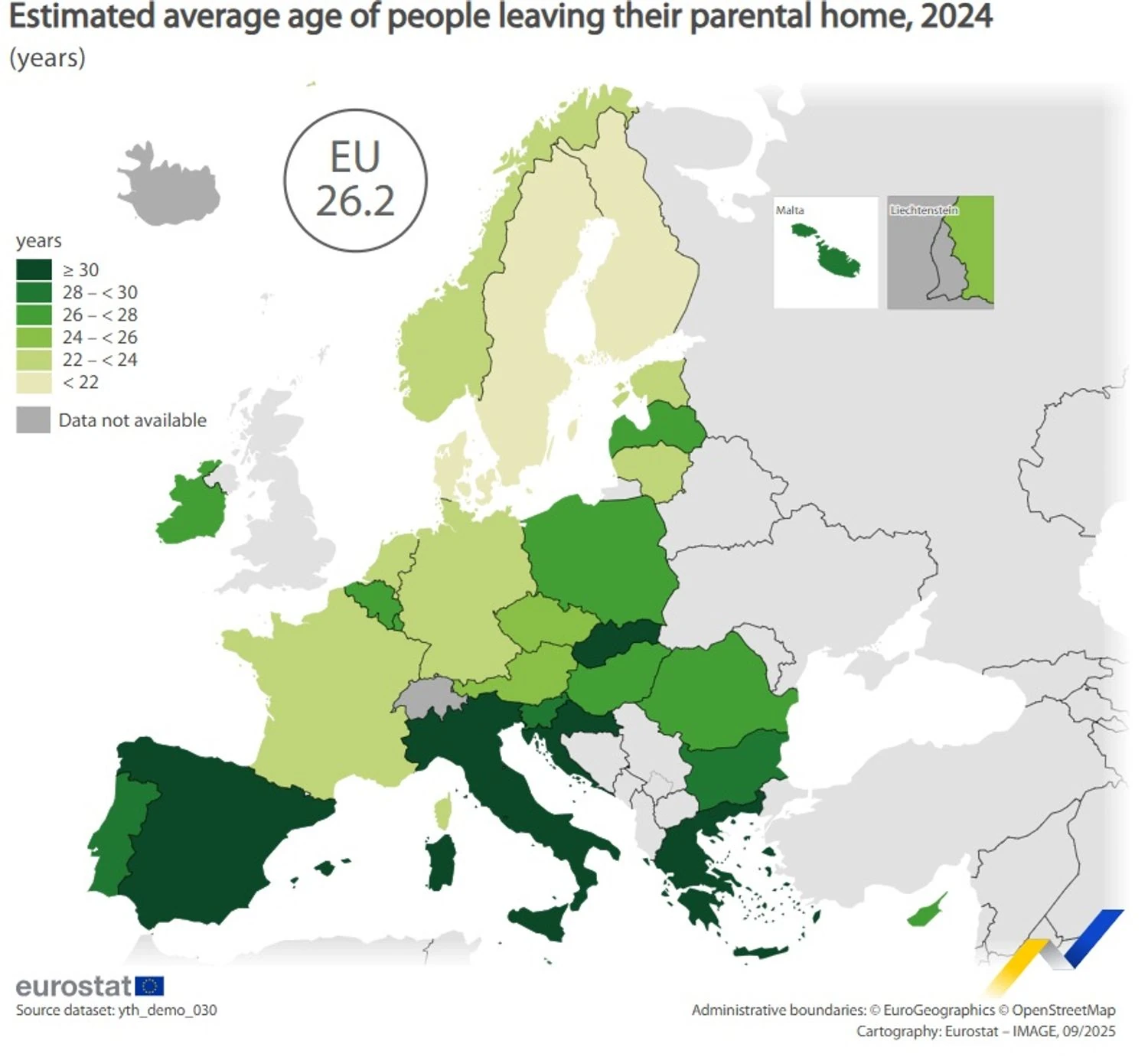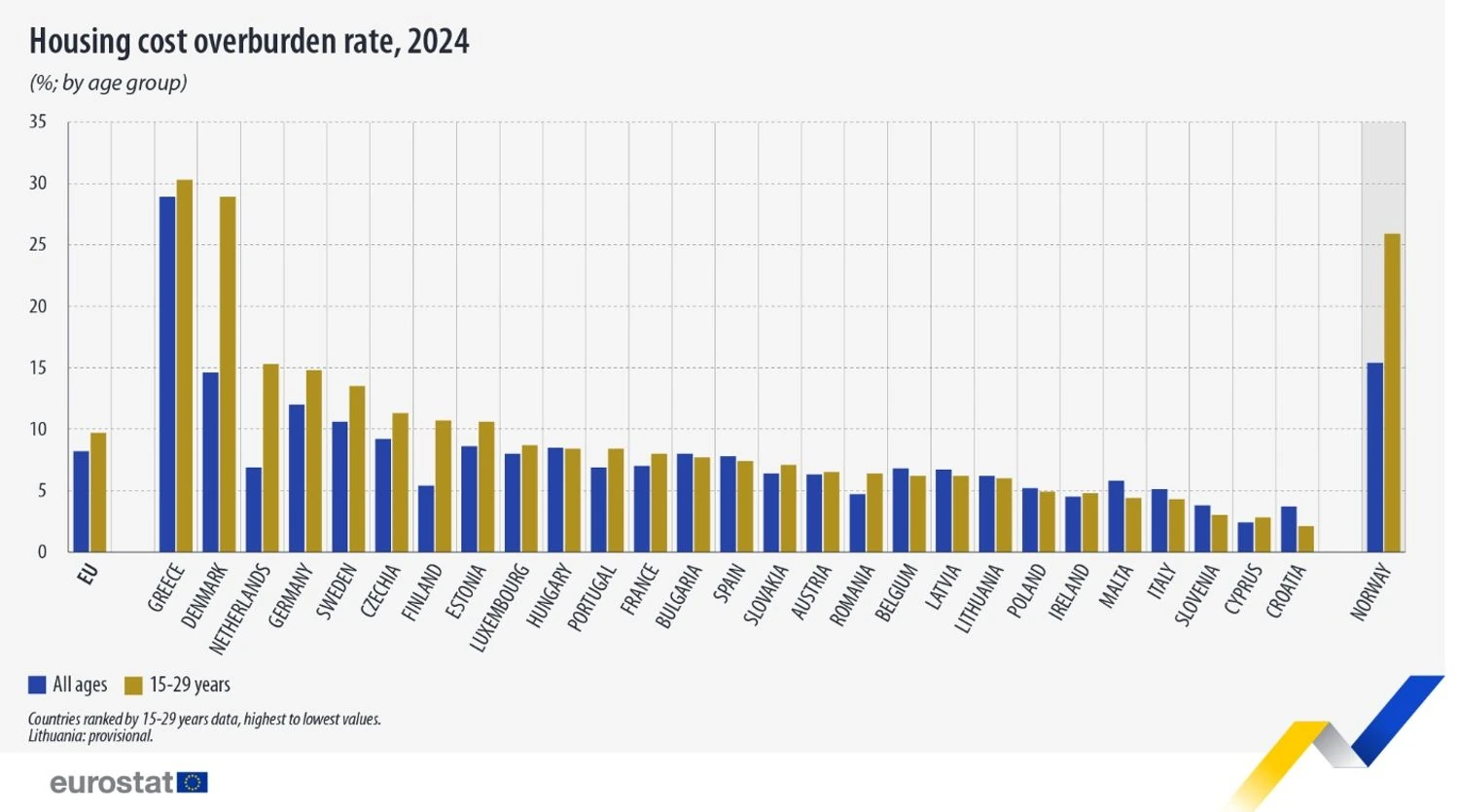In 2024, the average age at which young people in the EU leave their parents' home decreased to 26.2 years. At the same time, 9.7% of young people aged 15–29 in the EU lived in households that spent 40% or more of their income on housing.

In 2024, the average age at which young people in the EU leave their parents' home slightly decreased to 26.2 years. At the same time, data show that housing costs are increasingly burdening the younger generation, who are more likely than older people to face financial overload. These results were published by Eurostat, writes UNN.
Details
According to statistics, in 2024, young Europeans left their parents' home at an average age of 26.2 years, which is slightly less than in 2023 (26.3 years). Since 2002, this indicator has ranged from a minimum of 26.1 years in 2019 to a maximum of 26.8 years in 2006.

Young people in Croatia stay with their parents the longest – until 31.3 years, Slovakia – 30.9, Greece – 30.7, Italy – 30.1, and Spain – 30.0. They leave home fastest in Finland – at an average age of 21.4 years, Denmark – 21.7, and in Sweden, this figure is 21.9 years.
eOselia: 5.1 thousand preferential mortgages totaling UAH 9.4 billion received by Ukrainians since the beginning of the year23.09.25, 05:42 • 3508 views
The issue of housing affordability remains acute: in 2024, 9.7% of young people aged 15–29 in the EU lived in households that spent 40% or more of their income on housing. For the entire population, this figure was lower – 8.2%.
Among EU countries, the highest level of housing cost overload was recorded in Greece (30.3%) and Denmark (28.9%), while in the Netherlands (15.3%), Germany (14.8%), and Sweden (13.5%), these figures were significantly lower. The least financial burden was observed in Croatia (2.1%), Cyprus (2.8%), and Slovenia (3.0%).

In 16 EU countries, young people experience greater financial pressure regarding housing than the general population. In countries where young people leave earlier (Denmark, Netherlands, Germany, Sweden, Finland), the excessive housing burden for them is particularly noticeable.
In contrast, in countries where young people leave their family homes later (Cyprus, Croatia, Italy), this pressure is less. Greece is an exception, where young people, despite leaving late, have to spend a significant portion of their income on housing.
Demographic Crisis in Ukraine: Estimates from the Institute of Demography and Solutions to the Problems23.09.25, 15:09 • 59113 views





























